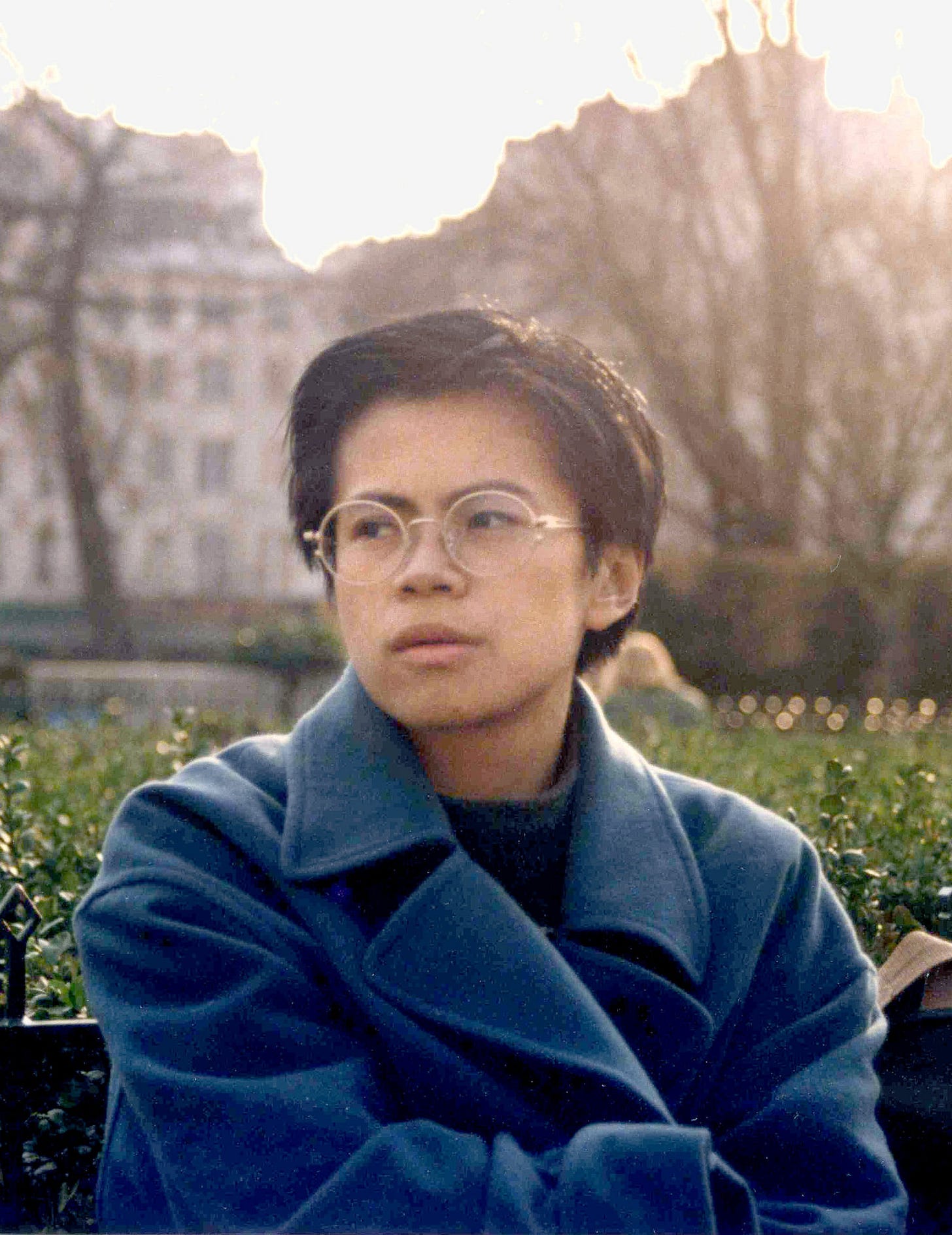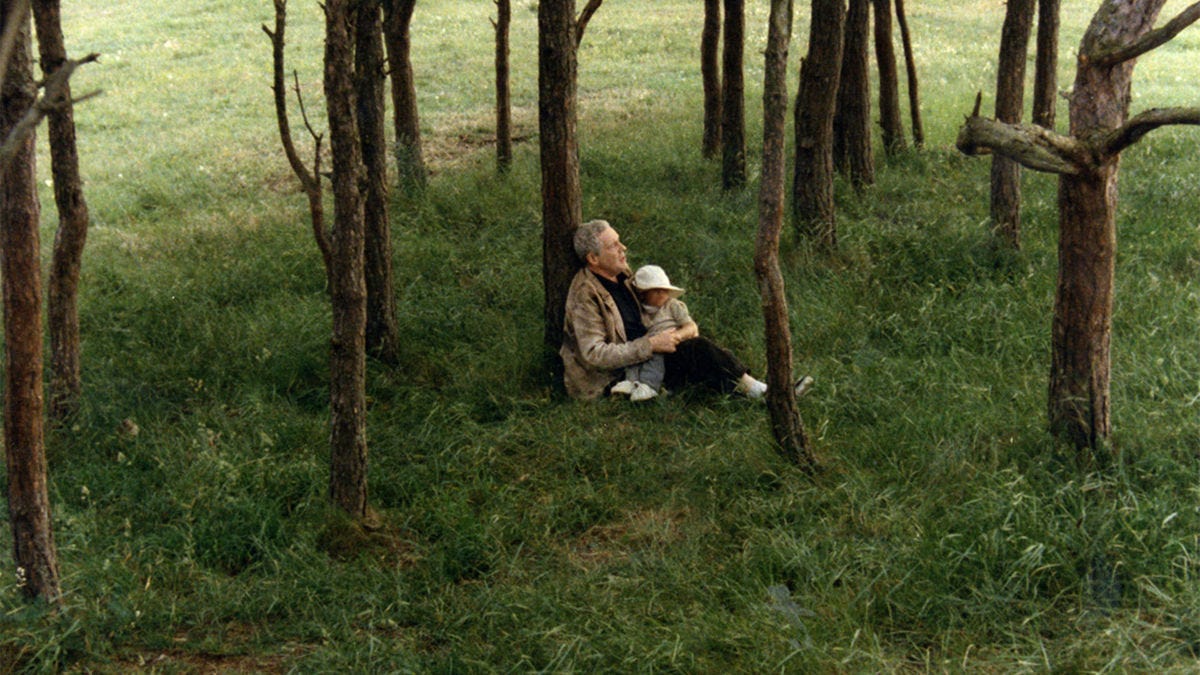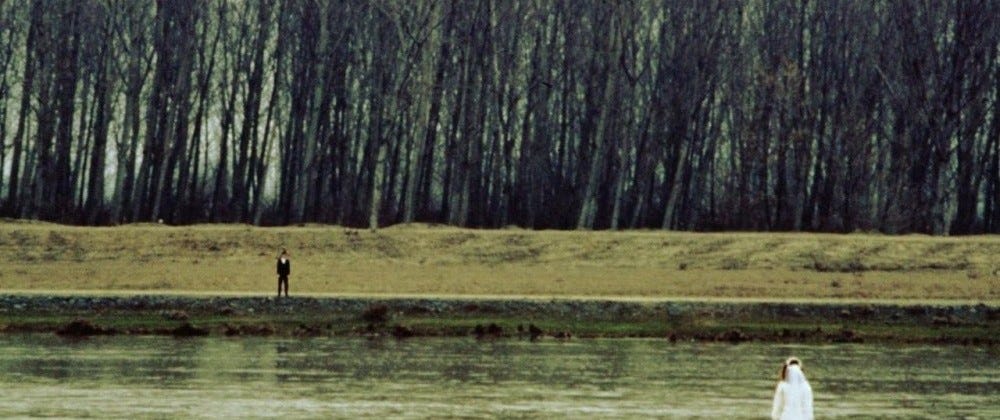Sundays with Scremes | Taipei Calling
Qiu Miaojin, Wistaria Café, Queerness, and Revolution in Literary Taiwan
Good evening and welcome to Sundays with Scremes, an ever-evolving exploration of literary culture, released every other Sunday. Today, a reflection on my recent voyage to Taiwan and a slice of Taiwanese literary culture.
“I feel like I’m ready to become an adult here, someone worthy of my own respect.”
–Qiu Miaojin
In 1995, in a flat in Montmartre, a 26-year-old woman plunged a kitchen knife into her heart, putting a final ending to her life as an artist. Or perhaps, she awoke one morning and, upon waking, found that her broken heart had run out of energy to beat. Or, just maybe, as in her favorite film, she went one night to beg for help from Maria, the witch, and Maria, using her body to console the 26-year-old woman, floated into the air above the bed with the artist and light emanated from both of their bodies and when that was done, one of them was left beyond life.
The specific circumstances around Qiu Miaojin’s death remain a mystery, but we have the writer’s work, both contemporary and posthumous, to guide us to her. Published in Chinese in 1996, the year after her death and translated into English in 2014, Last Words from Montmartre stands as a pinnacle of modernist and Lesbian Taiwanese literature. Consisting of 21 letters and two “witnesses”, the experimental (and autofictional) novel opens with the following epigraph:
If this book should be published, readers can begin anywhere. The only connection between the chapters is the time frame in which they were written.
I picked up Last Words from Montmartre before my own travels to Taiwan last fall. One of my favorite aspects of travel is the offer to step outside of one’s typical self (in large part by stepping outside of one’s routines). Connected to this love is another: Travel allows us to immerse ourselves in a 360° experience of culture. When I travel, I like to develop a site-specific media diet. For this trip, Qiu Miaojin functioned as the main course of this site-specific media. I relish how what we read (and watch and listen to) while traveling colors our experience and perception of the trip.
I chose Last Words semi-blindly, and found that it was the materiality of Paris that was revealed more than Taipei. However, I was delighted to find a text quilting together impressions of love, anguish, and desire (that triad of dark angels); an itinerant, multi-cultural and multilingual experience (the narrator travels between Paris, Taipei and Tokyo over the course of the novel); and a panoply of influences catalogued and revered in the diary-like letters that comprise the novel.




Other writers crop up throughout the pages—an excerpt of Clarice Lispector’s short story Amour serves as the book’s epigraph; the narrator discusses reading Kōbō Abe’s The Face of Another—but it is a pair of filmmakers who Qiu’s narrator truly reveres.
Reactions to the films of Andrei Tarkovsky and Theo Angelopoulos and musings on their skills, habits, beliefs, and roles as artists take up nearly as much space in Last Words as do the narrator’s lovers, who are the rarely speaking recipients of her letters. It felt like providence that I had, only two weeks prior to boarding the plane to Taipei, gone to Film Forum with Danny to see Tarkovsky’s final film, The Sacrifice.
Qiu placed Tarkovsky above all other artists alive in her time.
“Tarkovsky was right,” Qiu’s narrator writes in Letter Twelve. “The responsibility of the artist is to stir people’s hearts and minds toward loving others: to find the light and the true beauty of human nature within this love. Religion can rarely show us what fate means in concrete terms. Yet everyone needs to be understood and this understanding is found within each individual’s fate, one’s life journey that clarifies the way. I’m not a therapist or a philosopher or a priest. I’m an artist.” (My emphasis.)
This interest in “finding the light and the true beauty of human nature” pervades Last Words, and it is impossible not to read this as confessional, as true of Qiu herself. In Letter Seven, she writes:
“My goal is to experience the depths of life, to understand people and how they live, and to express this through my art. All my other accomplishments mean nothing to me. If I can only create a masterpiece that achieves the goal I’ve fixed my inward gaze upon during my creative journey, my life will not have been wasted.”
Besides Tarkovsky, Qiu’s narrator loves the Greek filmmaker Theo Angelopoulos, crediting The Suspended Step of the stork (1991) as a formative influence. In Letter Thirteen, she mourns Angelopoulos’ loss at Cannes. “Angelopoulos didn’t win the Palme d’Or at Cannes, and I wept for him. But fame and glory are not an artist’s nectar; they are a poison-tipped sword! Cast off the world of dust and keep working, Angelopoulos.” She speculates that the ongoing war in Bosnia underscored the selection and that “the jury must have been thinking about Yugoslavia in awarding Kusturica the prize.”1
Besides the artistic milieu that Qiu’s narrator references, Qiu herself also existed within a particular literary culture. Qiu’s English translator, Ari Larissa Heinrich, who was born the same year as Qiu and likewise lived between Taipei and Paris for a time, helps us understand the literary-artistic lineage in which Qiu intentionally and inadvertently placed herself:
Qiu’s suicide set off much debate in the Taiwanese media and literary circles. Did she kill herself for love? For art? Here it’s important for readers of this volume in English to remember that in East Asian societies, suicide has a different range of cultural meanings distinct from the familiar pathologized, criminalized, or theologically proscribed models in the West. Without going into too much detail, which could easily fill another book, suffice it to say that explaining her death purely in terms of failed romance or of underlying psychiatric problems—especially when her suicide was so deliberate, and so deliberately documented—would be a mistake. In the end we should try to understand Qiu’s death as she wanted it to be understood: as a kind of speech act, as the ultimate means of sealing the connection between art and life. Precedents for this kind of suicide place Qiu squarely in the lineage of her idols Osamu Dazai (1909–1948), who killed himself shortly after finishing his experimental novel No Longer Human (1948), and of course Yukio Mishima (1925–1970), who committed seppuku, leaving behind a manuscript with instructions to publish it.
Like Mishima did with The Decay of the Angel, the final novel in his Sea of Fertility tetralogy, Qiu left instructions for the publication of Last Words from Montmartre, thus sealing the connection between her art and her life.
Wistaria Tea House and Revolution in the R.O.C.


Besides Last Words from Montmartre, the other piece of Taiwanese art I took in during my trip was Edward Yang’s 1991 masterpiece A Brighter Summer Day. Amid the political unrest of martial law in 1960s Taiwan, Si’r, a night school student, falls in with a local gang and becomes caught up in violence—both immediate and political.
While in Taipei, I visited Wistaria Tea House, Taipei’s first designated Living Heritage Site. Built in 1920 by the Japanese during the colonial period in Taiwan, the house was later granted to David Chow, the Republic of China’s Director-General of Customs in 1950. Though a government official, Chow held liberal beliefs and used Wistaria as a gathering place for artists and intellectuals—many of whom were dissidents against the martial law regime that lasted from 1949 to 1987 (the longest period of marshal law anywhere in the world, until surpassed by Syria).
Stepping into Wistaria Tea House, I felt as though I had stepped into the Taipei of Yang’s A Brighter Summer Day. The ritual of tea—even when it comes alongside a disciplinary conversation with Si’r’s father—pervades the film. And, as with many of the hundreds of cafés throughout the city, Wistaria was playing host to more than a few students and writers, reading and working on material.
Serbian filmmaker Emir Kusturica’s won the Palme d’Or at Cannes in 1995 for Underground, a politically controversial choice, as Kusturica was a Yugoslav nationalist, and several critics accused him of being a willing propagandist for Slobodan Milosevic.










Very pleased to have another name to add to my list of women who stabbed themselves--also includes Erika from The Piano Teacher, Lucretia, and Cleopatra (if we can count snake fangs as stabbing)